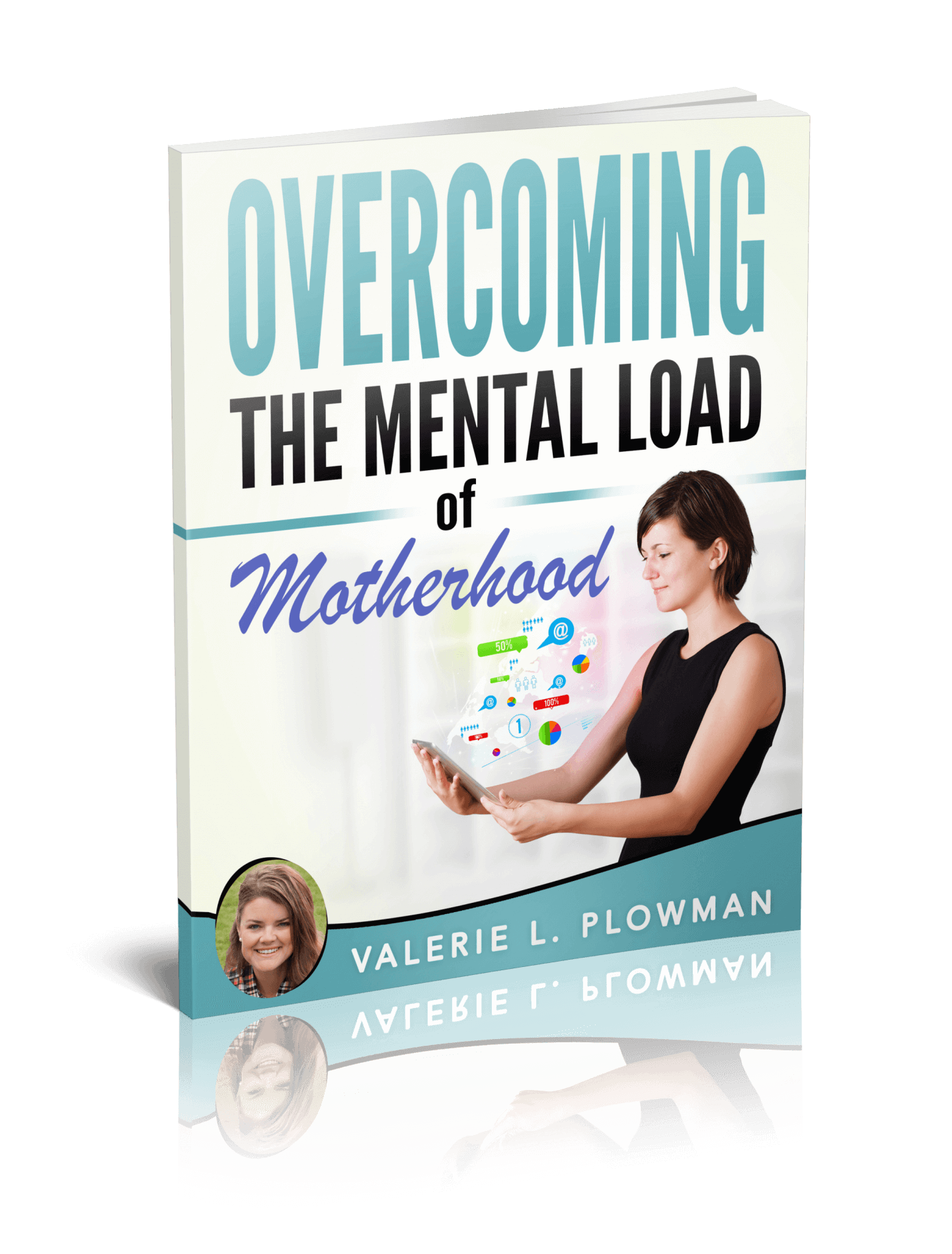Learn how to start a baby routine. If you want to have a baby schedule, you MUST include this element in your time establishing a baby routine.

Starting a routine for your little one looks easy on paper, but when it comes to implementing the routine and actually following it, you might quickly find it isn’t as easy as you thought it would be.
When we had our first child, we decided at first we would just kind of wing it, follow his lead, and things would work out.
We tried that…and we were wrong!
He wasn’t sleeping and we had no idea when he would want to eat next. We felt trapped in our home.
So we turned to On Becoming Babywise to help us get some predictability in our lives. Things immediately improved so much! But we still weren’t to that nice, predictable day to day.
Then we realized we had neglected a key element to really establishing our schedule.
Post Contents
Why Have a Baby Routine
Before we get into the key element for a baby routine to work, let’s discuss why you should have a baby routine. There are several benefits.
- Baby sleep: When you have a routine, your baby will sleep better. Your baby will have a predictable nap time and follow a sleep schedule. Sleep time at night will be predictable. So much growth happens mentally and physically during sleep.
- Sanity: The sanity of mom and dad and other caregivers can be much happier when you have a baby routine. Predictable naps and nighttime sleep mean you know what to expect. That means you can plan your days. That also means you can have time to rest yourself and get other things done. Once your baby falls asleep, that time is yours to do as you wish.

The Key Element For a Baby Routine
Whether you are starting a routine with your child at one day old or one year old, there is one key element you must put into place if you want to see success. This element is no respecter of age, circumstance, weather, experience…nothing. No one is exempt if you really want to see success and the benefits of a routine for your baby.
You must dedicate some time to establish the routine.
You must dedicate this time with little to no disruptions from what the routine will be. No nap skipping. No late nights. No vacations. You don’t even want to disrupt your little one for a trip to the grocery store.
Be dedicated to the routine. You can’t have a “routine” your baby follows if you never really taught baby what the routine is, right? If you want a routine to stick, stick to the routine.
Give The Routine Time to Stick
Don’t panic. You can still have a life and have a baby schedule. I said some time.
I didn’t say forever and ever until the end of days.
So how long is “some time”? Ideally, you will give two weeks with little to no disruptions. If two weeks is absolutely impossible, you must do at least one.
You cannot logically expect a child to get established in a routine if there is never real time given to developing that habit. Your child cannot be predictable if your child can’t even predict what is coming next. The only way to get here is through consistency.
Read: Tips for Establishing Consistency–Make Sacrifices
Yes, that might mean you will miss Sunday dinner at grandma’s this weekend. Yes, you might have to skip out on going out to dinner with friends this Friday night. There will be sacrifices required from a lot of the adults. But adults are, well, adults and can handle a little disappointment for the good of a baby.
Sacrifice is Worth It
Does that make you pause? Hesitate? Are you second-guessing your desire to have a good sleeper with some sort of predictability in her day?
I promise it is worth it! I know it can seem hard at times while you get things really set up, but once it is, you can be flexible and you can have baby be the one to make sacrifices at times. Read up on Balancing Baby’s Needs with Family’s Needs for more.
Read up on 5 Reasons I Love Babywise and How On Becoming Babywise Saved My Motherhood for some pep talks to get you pumped for a little bit of sacrifice for major payout and rewards.

Tips for Establishing a Great Routine
Here are some ideas to help you have success in your two weeks of dedication to establishing a routine:
- Have a plan. Make an ideal schedule so you know what you are aiming for. Your goal needs to be set in order for you to hit it. If you aren’t sure where to start, head over to read How To Plan Your Ideal Babywise Schedule. Plan out what your sleep routine will be (you can tweak it if needed!)
- Let friends and family know. Be upfront and let them know you will be staying home for the next two weeks so you can help your little one get on the path to good sleep.
- Host at your house. If you can’t stand the thought of missing things, host events at your house so your baby can still have consistency at home.
- Choose a good window of time. It probably isn’t best to plan your two week window over Christmas or during a family reunion. Choose a two week window that you can be most successful in.
- Prepare things beforehand. Get as many errands done before your two week consistency window as you can so you can avoid emergency trips to the store. If you have to run errands during the two week window, try to get a babysitter, have your spouse do the trip, or do something like grocery pickup so your trip can be as fast as possible. Services like online shopping (hello Amazon Prime!) can be your best friend during this time period.
- Be patient. This time period will not last forever. In baby time, two weeks can seem like forever, but it is a relatively short time period, and fully worth the time it is taking. You will be able to have a life once your routine is set. If you want to be able to have flexibility, you need to have a starting spot for your child to go back to.
- Have a consistent morning wake up time. Start your baby’s routine or schedule at the same time each day. This is the best way to have a consistent schedule each day. Read more at What Time to Start Baby’s Day. When your morning wake up time is the same each day, then your morning nap will be at the same time each day. That pattern continues throughout your day. When you get up at the same time each day and have your first feeding at the same time each day, your body gets used to eating at that time.
- Have a consistent bedtime. At the other end of the day, have a super consistent bedtime. Aim for ending your day at the same time. Read more at Importance of Consistent Bedtime.
- Sleep train your baby. Your baby will wake up during every sleep cycle, and if your baby cannot self-soothe, your nap schedule will be thrown way off. Sleep training will help get baby sleeping better, which helps you stay on track for your schedule.
Once you have all of these things done, step back and analyze the situation. Are things moving toward consistency? Sometimes we find ourselves in more of a pattern than a schedule each day. We know our baby will eat, wake, then sleep, but we don’t know when. I was there once, too! Read how I got out of that and into predictability at Getting a Consistent Schedule.
Also, I created a book of logs to track everything with my babies and it was SO helpful. I have it in eBook form for you here.
Conclusion
This consistency might sound tedious, but it is a relatively simple step to ensuring your baby or child can get well-established into a routine. Taking time for consistency is vital whether you are working with a one month old baby, a baby who is 5 months old, or even a toddler.
You cannot create a routine without setting one up. That would be like expecting someone to play a piano song memorized just because you mentioned to them the title of the song. It can’t happen.
This is your practice session. You must practice and get that routine in place if you want your baby to follow it. The sacrifice is worth it. The consistency will pay off. You will be so glad you did it!

Related Posts on Schedules
- Starting Babywise Late Guide
- “Flexible-izing” a Baby
- Managing the Entire Family’s Schedules
- Meeting Needs of Each Child
- Let Your Schedule Serve You, You Don’t Serve Your Schedule
- Essential Elements to Any Routine
Related Content:
- Bedtime Routines- the 4 core parts you need for success
- Benefits and Types of Routines – And How You Can Use Routines Without Using Schedules
















